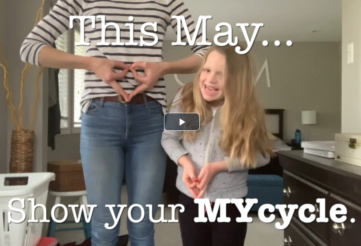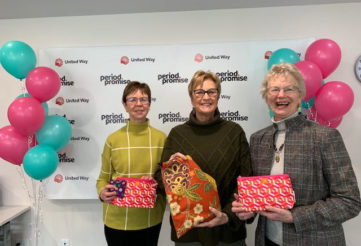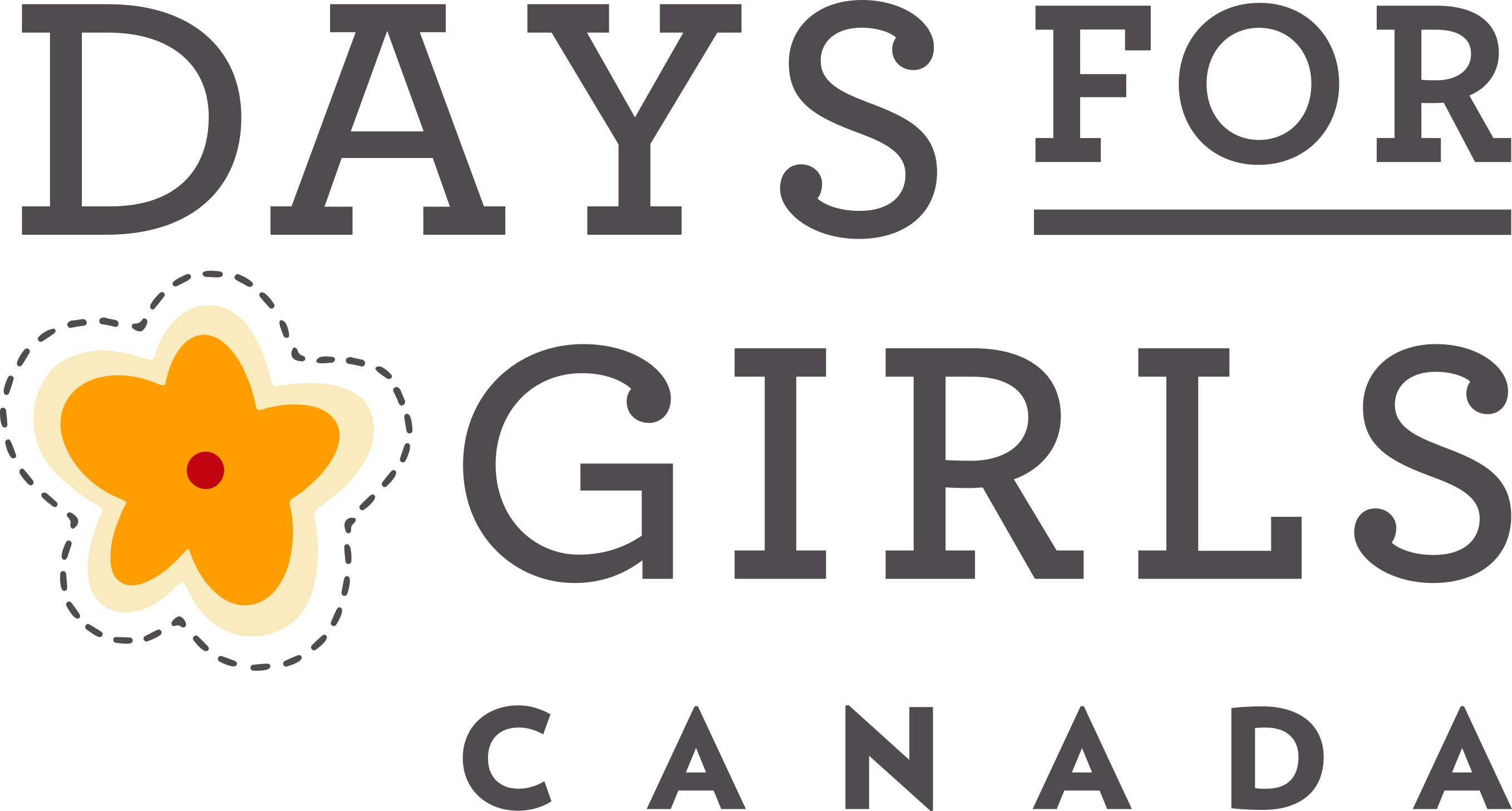Current Projects
Yellowknife Distribution
Several years ago, we decided to focus more on Canadian distributions. One of our team members took on the task of trying to make connections in Canada. That is how we came to have a regular relationship with an organization name FOXY (Fostering Open Expression Among Youth). FOXY is based in Yellowknife, NWT and runs camps and workshops for young people from across the north.
After discussions on the Days for Girls Hybrid Kits, FOXY decided they didn’t want disposables but did want menstrual cups. We explained the education part of the distribution and they were very enthusiastic about it. They were willing to take the on-line Ambassador of Women’s Health course although they already address many of those topics.
The first year we shipped 50 kits, some heavy flow and some regular and 25 menstrual cups. FOXY asked that the kits packed differently next time. They wanted one heavy flow shield and two heavy flow liners in each kit. They indicated that the young people said those were better for overnight use.
The next year, they requested 80 kits in the custom packed manner, as well as 80 menstrual cups. Last year, we sent 35 kits and 35 menstrual cups. Despite the fires and the upheaval of the evacuation this past summer, FOXY still held their camps and distributed the kits with the education. The comments came back that because supplies are very expensive and not always easily available, the girls really value these Days for Girls kits.
The 2024 order has been placed and so the valuable collaboration continues.
Food Bank Distribution for Nepean Ontario Team
While much of the distribution energy for Days for Girls Canada Society is focused on international distributions, refugees and helping in disaster situations, we also have a need for menstrual supplies in Canada. The Nepean Ontario Team is always looking for opportunities to distribute washable, sustainable kits and hybrid kits locally.
This fall we had such an opportunity. One of our team members was looking for volunteer opportunities for her granddaughter. In the process of visiting a Food Bank, she asked the question; “What do they do about menstrual supplies?” The answer : “Nothing, unless we get a donation.”
We met with the Food Bank Director and showed her the type of kits we could supply. She welcomed our participation and arranged for us to meet with clients when they picked up their groceries. Individual appointments to come and pick up their supplies allowed us to meet with them individually and explain the kits and let them choose what would be most practical for them.
The second day we were there, several of the women who had picked up a kit for their daughters, came back for one for themselves. Another person brought her neighbour who wanted a kit because she had seen one and read the trifold which we handed out with each kit. Even some men stopped, looked and learned and one brought his daughter back to choose a kit. One man took a kit for his wife, and another took a kit for his daughter.
We distributed 78 kits over those three days and made personal connections that let us explain a bit about the use and care.
We tried before to work with Food Banks with limited success. One of the problems seems to be the lack of time and the lack of personal connection. This was a successful project because of the opportunity to show the kits, explain them and talk about the use and care. This was also successful because of the support from the Director and the volunteer staff.
Labrador Midwives Distribution
Like many of the Teams and Chapters in Canada, the Nepean Team is always looking for opportunities to fill unmet needs for menstrual supplies here in Canada. Sometimes, an opportunity presents itself and we need to move fast to take advantage of it.
This opportunity came about through former distribution coordinator Bev Langlois, who is a midwife. The Canadian midwives conference was in Ottawa and she knew someone at the conference who was interested in the Days for Girls kits. Bev asked Mary Johnston, Co-Lead of the Nepean Team if the Nepean Team could supply sample kits to a midwife from Labrador who was at the conference.
The Nepean Team had several sample kits which it had used in speaking to Food Banks. These were dropped off at the hotel for the midwife to take back with her to show her colleagues. The next week, an order came in from the Innu Midwives in Labrador for 50 hybrid kits, some regular and some heavy flow, complete with trifolds and a flip chart. They were very well received and hopefully are the start of a longer-term relationship. The midwives were very happy to receive the kits and the educational materials because they also work with young people in schools.
Innu midwives could be strong partners in accessing and supporting the menstrual health needs in more remote communities in Canada.
Our First National Campaign!
MAYstruation
 More than 500 million people worldwide do not have access to menstrual supplies to manage their periods. We aim to change this!
More than 500 million people worldwide do not have access to menstrual supplies to manage their periods. We aim to change this!
MAYstruation is a month-long event building up to World Menstrual Health Day on May 28th. This year Days for Girls Canada hopes to inspire people everywhere to start the conversation about period poverty, menstrual equity, and menstrual health education. During the month of May, please paint your thumbnails red, make your own MYcycle, spread awareness, and donate to Days for Girls Canada to show your support. Help us shatter the stigma of menstruation as we provide sustainable menstrual supplies to menstruators worldwide, including right here in Canada!
The MAYstruation Rulebook:
1. Find your favourite shade of red and paint your thumbnails!
2. Post a picture to social media of yourself making the “MYcycle” with your hands. Don’t forget to show off those red nails!
3. Make sure you’re taking full advantage of your platform by copying and pasting the following hashtags into every post: #MAYstruation #EveryGirlEverywherePeriod #DaysforGirls #MHD2021 #EndPeriodPoverty
4. Tag at least three friends and challenge them to post a picture of their MYcycle!
Donate to MAYstruation and help us end period poverty.
For every $15.00 you donate, you can sponsor a DfG Menstrual Kit that will provide menstrual health for one person for three years.

Period Promise
Days for Girls Kamloops partnered with the United Way in their Period Promise program which is aimed at alleviating period poverty right here in Canada by providing women and girls with an environmentally sustainable alternative to disposables.
Businesses in Kamloops donated money and disposable products to the United Way as a means of supporting this important project. Period Promise is linked to the Tampon Tuesday project also spearheaded by the United Way.
When Days for Girls Kamloops was asked to participate “we jumped at the chance” said co-leader Trudi Backman. “This was the perfect way to support our local community with a product we usually send abroad” she said.
Roberta Kjelson, also a member of the Kamloops Team, explained that there are three reasons why women like to use washable kits. First, it cuts costs considerably. These DfG kits, offered free of charge to anyone who needs them, allows women and girls to allocate monies they would otherwise have to spend on disposables, to other family expenses. Secondly, the DfG kits are good for the environment. “We all know the high social and environmental cost of disposing of millions of pads and tampons in our waste facilities,” said Kjelson.
The third reason for the success of the DfG kits, is that some women are allergic to disposable products and find these kits so much more comfortable and hygienic.
DfG Kamloops is delighted to partner with the United Way on this wonderful project and to be such a good part of the solution for so many women, girls, and anyone who menstruates.
After all, Days for Girls is all about reaching Every Girl. Everywhere. Period.




